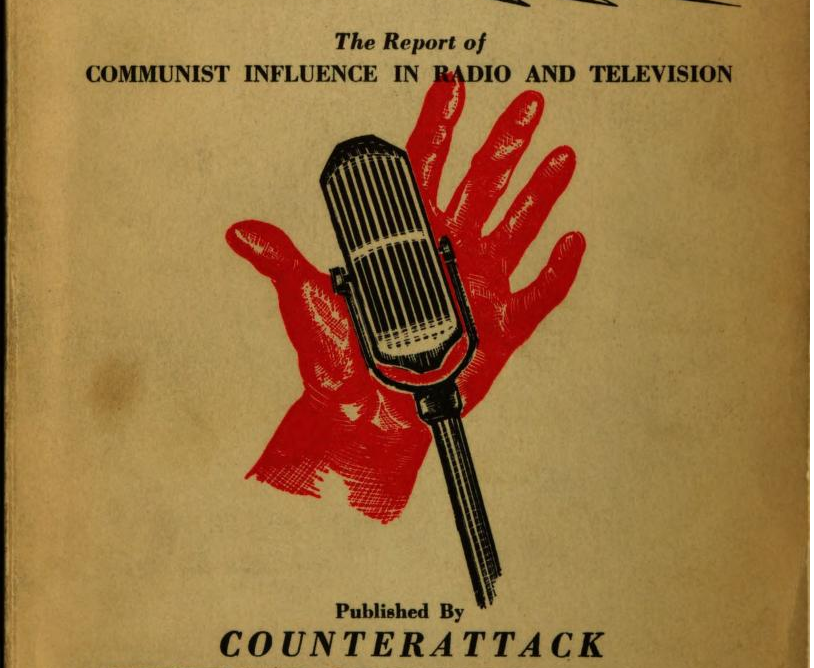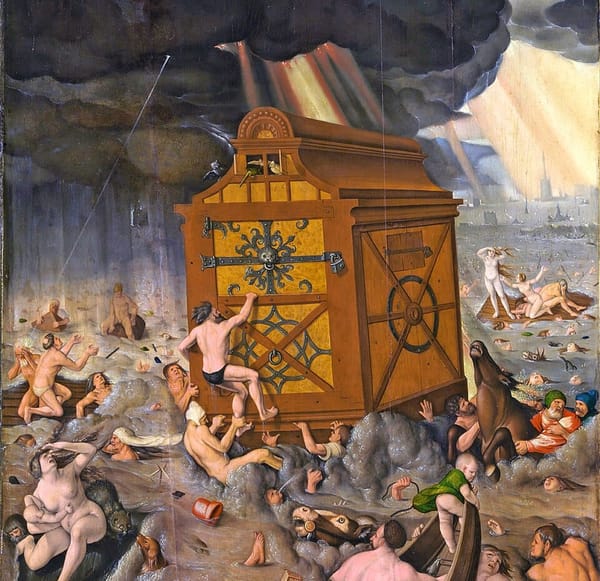The Second Vanishing of Hazel Scott
As the Trump administration seeks to erase the history of Black achievements, we must ensure that figures like Hazel Scott are not forgotten.

Hazel Scott is finally having her moment. Decades after her death, Scott had largely been forgotten by pop culture until relatively recently. This began to change in 2019, when Alicia Keys paid tribute to Scott at the Grammys. Keys began her performance sitting side-saddle between two pianos, as she played Scott Joplin’s “Maple Leaf Rag." At the end, Keys cited her inspiration: “I’ve been thinking so much about the people and the music that have inspired me, and I want to give a shout-out to Hazel Scott, because I always wanted to play two pianos.” Soon, social media would be awash with the now-familiar video of Hazel Scott doing just that, playing two pianos simultaneously, stunning social media users with her virtuosity and skill, swinging the classics.
Yet it would still take several years for Scott to gain the recognition she deserved, culminating in the release of the documentary The Disappearance of Miss Scott, directed by Nicole London, earlier this year through American Masters on PBS. Finally, Americans could learn the full breadth of Scott’s story, from her meteoric rise as a jazz talent and major Hollywood star before getting caught up in the Blacklist during the Red Scare. But now, the same reactionary forces that forced Hazel Scott out of the spotlight have the potential to erase her legacy a second time.
Against the backdrop of the Trump administration's efforts to erase Black achievements, keeping these stories alive and visible takes on a renewed importance.
Scott returns to us at a tense yet familiar political moment. A performer who openly challenged the racial and gender barriers placed upon her by Jim Crow, her rebellious spirit feels right at home in our own era of unease. Even a cursory glance at her biography places her at the center of many of the most exciting cultural and political scenes of the 20th century.
Born in Trinidad, her family would move to Harlem in the 1920s at the height of the Harlem Renaissance, growing up amidst a period of renewed Black cultural and political consciousness. A child prodigy, she received piano lessons at Juilliard at eight and, under her mother’s guidance, began performing at clubs as a teenager. Scott’s break came when she began performing at Cafe Society, the rare racially integrated nightclub known for showcasing Black musical talent and left-wing politics. This is the venue where Billie Holiday debuted the haunting anti-lynching song "Strange Fruit.” As biographer Karen Chilton wrote: “A sexy siren sitting bare-shouldered at the piano, Hazel Scott captivated audiences with her renditions of classical masterpieces by Chopin, Bach and Rachmaninoff.” Success came quickly, but staying true to her principles, Scott refused to perform for segregated audiences.
A short-lived film career followed, performing alongside performers like Lena Horne in a direct challenge to the film industry's demeaning portrayals of Black women. Hazel Scott would play no maids or washer women, appearing as the glamorous performer she was and insisting upon being credited by name: “Hazel Scott as Herself.” As her film career wound down, she married minister and politician Adam Clayton Powell Jr., the first Black congressman to represent Harlem. She continued to perform, collaborating with jazz legends such as Charles Mingus and Max Roach, even becoming the first Black woman to host her own TV show. But like many Black entertainers in the postwar era, Hazel Scott found herself within the crosshairs of McCarthyism. Named a communist in Red Channels, no amount of denials would clear her name. Soon her career unraveled and her marriage along with it, eventually becoming an expat in France before returning to the US in the late 60s. She kept performing until her death in 1981.
The greatest strength of the documentary is how effectively the filmmakers make the case for the preservation of her memory. Not just her musical contributions, which are stunning, but also her activism, exploring how art and politics intersected under Jim Crow. At a time when there were few legislative achievements for civil rights, she used her celebrity to directly challenge the racial and gender norms of her day. As many of the commentators in the documentary note, Scott’s career provides a window into the overlooked world of antiracism and progressive activism that foreshadowed the later developments of the civil rights movement.
Black history is full of forgotten and overlooked figures. The reasons for this are painfully obvious: a lack of mainstream scholarship and resources, alongside active efforts to whitewash the historical record. For decades, American Masters has pushed back against this erasure, crafting intimate portraits of notable individuals in history, especially those who have been marginalized and overlooked. Subjects have included familiar faces such as Marian Anderson and Sammy Davis Jr., but also the Black union leader A. Phillip Randolph, who, like Hazel Scott, has only now begun to undergo rehabilitation. Yet then, just as now, reactionaries seek to make sure these stories don’t see the light of day.
The Disappearance of Miss Scott debuted on PBS a month after Trump’s inauguration and the beginning of his administration’s war on public services, seeking to rid the government of “woke” influences. As a current exhibition on the Hollywood Blacklist notes, the language and innuendo mask their true intentions. While proponents of McCarthyism claimed to be fighting communists, in reality, “names were blacklisted on the basis of mere association with a liberal cause — which included labor organizing and support for the Civil Rights Movement, both causes that were endorsed by the Communist Party USA, but also held wide appeal, particularly within Jewish and Black communities.” Similarly Trump’s attacks on “woke,” effectively means attempting to erase the histories and experiences of women, people of color and LGBTQ people from the historical record.
PBS has found itself in the President’s crosshairs for this reason. Earlier this year, after being denounced by the President as “A LIBERAL DISINFORMATION MACHINE” in a post on Truth Social, Republicans voted to eliminate funding for the Corporation for Public Broadcasting, which funds PBS, NPR, and other public media. Although thousands of Viewers Like You have rallied to donate to fill the gap, without federal funds, stations have been forced to cut down on staff and programming. Once again, racist fearmongering risks condemning the story of Hazel Scott and countless others to obscurity.
As a performer who valued her voice, both on stage and off, Hazel Scott did not back down when the powers that be tried to silence her. Even when facing HUAC’s accusations, she was fearless, bluntly telling the committee: “It has never been my practice to choose the popular course. When others lie as naturally as they breathe, I become frustrated and angry.” Such strength is inspiring, especially as we’ve seen politicians, companies, and universities easily fold to pressure from the federal government and the far right. Her defense of the First Amendment carries just as much, if not more, weight now than it did during her lifetime.
The recent resurgence of Hazel Scott is not just a delayed recognition of her considerable talent, but also a reaffirmation of her defiant spirit. As we encounter a new wave of censorship and historical erasure, her life story is a powerful example of resistance to authoritarianism and a reminder of the consequences if we fail to hold this generation of tyrants accountable. We still have a lot to learn.
Featured image is the cover of "Red Channels: The Report Of Communist Influence In Radio And Television"




